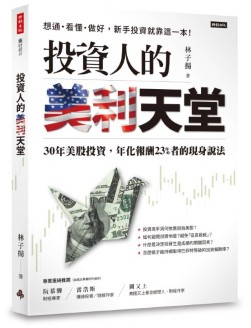Passive investment is an inevitable trend long term. According to David Swensen mentioned in book “Winning the Loser’s Game”, at the end of 2007, index funds in the United States accounted for just over 5% of all mutual fund assets.
Statistics for 2024
Active mutual funds continue to bleed
According to EPFR data, active mutual funds that actively select stocks saw outflows of $413 billion in 2023, a record high, and set a new high in 2024, losing a record $450 billion. Not only are funds more expensive, they also underperform the broader market.
Funds Flow to ETFs
Compared to the out-of-favor active funds, investors’ new favorite is ETFs listed on exchanges. ETFs have tax advantages in the United States and are more flexible for many investors. Data from research firm ETFGI shows that by 2024, funds invested in ETFs will reach $1.7 trillion, most of which are passive investment funds, increasing the total assets of this market by 30% to $15 trillion.
Why active funds have fallen out of favor
Morningstar data shows that after deducting management fees, the average return of active funds under large US asset management companies in the past year was 20%, and the average annual return in the past five years was 13%. The returns of passive funds are 23% and 14% respectively.
The management fee that investors must pay in a year is 0.45 percentage points for active funds and 0.05 percentage points for passive funds that track indexes. That is, the fees of active funds are nine times that of passive funds.
Active funds are repackaged as ETFs
Because of this irreversible trend, traditional mutual fund companies have been forced to try to repackage some of their active funds into ETFs, and of course have achieved some results.
ETF market size
Size of global ETFs
By the end of 2023, the size of global ETFs was US$10.99 trillion, while the size of global mutual funds stagnated and no longer grew after reaching US$26.9 trillion in 2021.
The size of global passive funds (mainly ETFs) has exceeded that of active funds since March 2023.
Size of US ETFs
According to monthly data from ETFGI, the total assets of U.S. ETFs reached a record high of US$10.6 trillion by the end of November 2024, a surge of more than 30% from the beginning of this year. Cerulli’s data shows that four of the ten ETFs with the largest inflows since 2024 track the S&P 500 index. In addition, Cerulli data shows that the five new ETFs with the highest assets as of November 2024 are all Bitcoin ETETFs.
As of February 2024, the U.S. ETF market size was $8.15 trillion, with more than 3,400 ETFs.
By March 2023, at least 19% of U.S. stocks will be owned by passive ETFs.
The size of China’s ETFs
The National Business Daily reported that by the end of July, China’s ETF market had surpassed Japan’s, becoming the largest in Asia.
Data from China Securities Finance Corporation (CITIC Construction Investment) showed that China’s ETF assets under management reached US$640.6 billion at the end of July, compared to Japan’s US$622.3 billion. This marked the first time that the Chinese market surpassed Japan, taking the lead in Asia.

Figure 1: Trend of US investor funds flowing into active and passive funds (2000-2023, graph from JPMorgan Chase)
Size of South Korea ETF
The net asset value of South Korea’s ETFs is expected to exceed 200 trillion won (about US$143 billion) in May 2025.
Related articles
- “Best 10 years returned industry-specific ETFs“
- “The power of index ETFs underestimated“
- “Consequences of Index Fund and ETF Regulations and Restrictions“
- “Investors turn to passive investment funds ETF and abandoning active investment funds“
- “Most investors should invest ETFs tracking broader market“
- “S&P 500 index, the only stock worth holding forever“
- “US issued ETFs tracking US market is your best bet“
- “Top 10 ETFs and important major US stock market index“
- “Disadvantages of ETF investment“
- “Any strong reason to buy mutual fund?“
- “Strong reasons not to invest in non-broad market ETFs“
- “Why most investors should invest ETFs tracking broad market?“
Disclaimer
- The content of this site is the author’s personal opinions and is for reference only. I am not responsible for the correctness, opinions, and immediacy of the content and information of the article. Readers must make their own judgments.
- I shall not be liable for any damages or other legal liabilities for the direct or indirect losses caused by the readers’ direct or indirect reliance on and reference to the information on this site, or all the responsibilities arising therefrom, as a result of any investment behavior.

